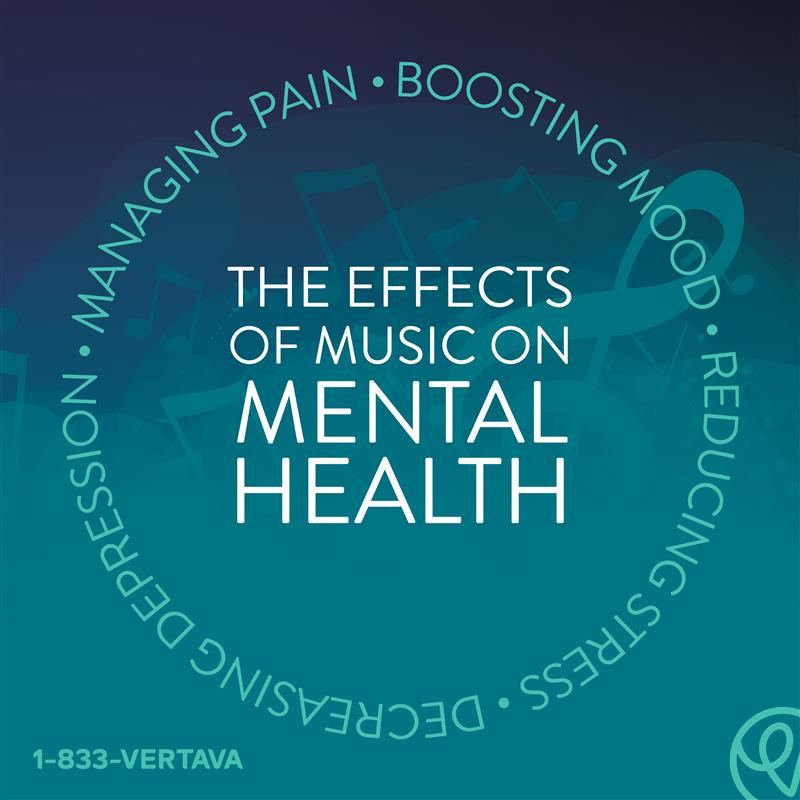When you are feeling down, sometimes turning on your favorite song can change your whole mood. Although it might just seem like a brief diversion, it’s not just in your head. Music may work on a deeper level to improve your mental health.
The Effects of Music on Mental Health
In some cultures, music has long been thought of as having the power to help heal, but the psychological benefits of music are still being discovered and researched for use in modern society. Our health and wellness center is sharing some of the many ways that music helps mental health.
Boosting Mood
One of the ways music affects well-being is by its ability to boost someone’s mood. Several studies have found that both music therapy techniques and just listening to music can improve a person’s mood.1 Even listening to sad songs may be beneficial. A study from the United Kingdom found that about a third of participants who listened to sad music felt better mentally after the song was over and even considered the experience pleasurable.2
Reducing Stress
Another way how music helps mental health is by decreasing stress. Music interventions have been found to significantly decrease stress responses both psychologically and physiologically.3 Not only do people feel less stressed but also their body responds less drastically to stressors. These physiological responses include lower cortisol levels, decreased heart rate, and lower blood pressure.3
Decreasing Depression
Along with the effects of music on mood and stress levels, music therapy is sometimes used for people with depression. When music therapy is used in combination with traditional treatment methods, patients experienced fewer depressive symptoms than with traditional treatment alone. These same patients who were struggling with depression also saw decreased levels of anxiety and improved functioning when music therapy became a part of their treatment plan.4 
Managing Pain
Along with the psychological effects of music therapy, this holistic mental health treatment may also help with physical pain in a way that also promotes overall mental well-being. Not only can the use of music therapy decrease pain as well as the amount of sedation medication used during procedures, but also it may reduce anxiety surrounding the procedure and improve patient satisfaction.5 As the benefits of music for mental health continue to come to light, more and more treatment centers are utilizing music therapy programs as part of their regular treatment plans. These programs can include a variety of different musical activities and when combined with psychotherapy, may be beneficial for some people. So, the next time you are feeling down, go ahead and turn up the beat. It may help more than you realize. While the mental effects of music can be beneficial, if you are struggling, it is important to get professional help. Our therapists and psychiatrist are here to help you better manage your mental health symptoms. With a combination of evidence-based practices and alternative treatment programs, you could be well on your way to living out your best future. Contact us today to learn more about Vertava Health other locations.


